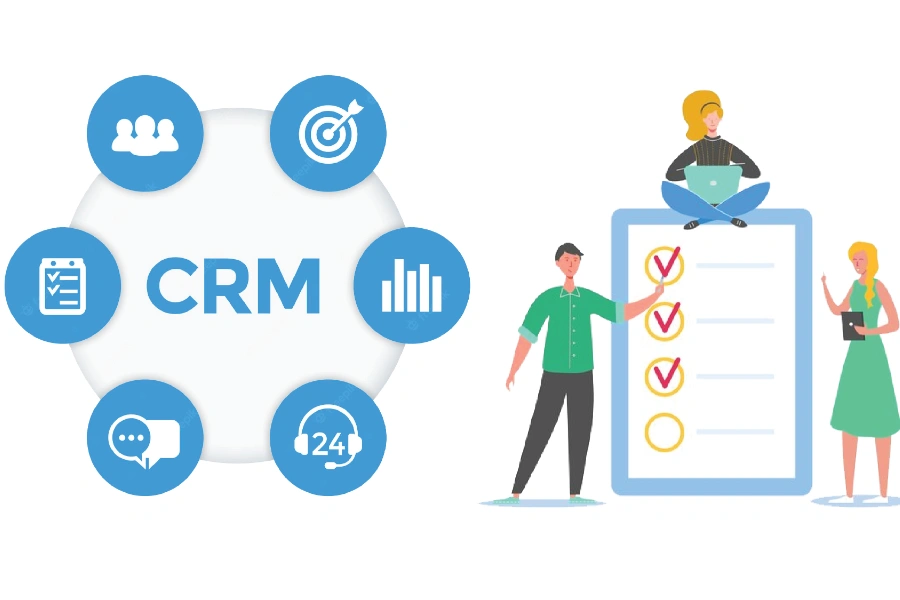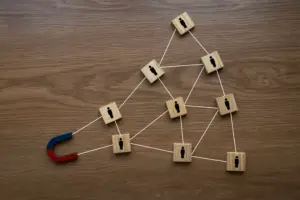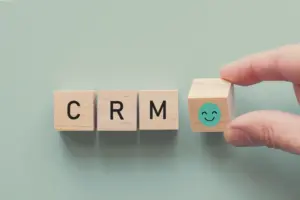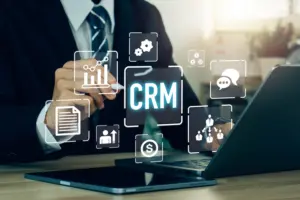Imagine you’re organizing a big party for all your friends. You need to remember who likes chocolate cake, who prefers vanilla, and who’s allergic to peanuts. You also have to keep track of who you’ve invited, who’s coming, and who still needs an invite. That’s a lot to manage! Now, think about a business trying to keep track of thousands of customers. It’s even more complicated! This is where a CRM system becomes really helpful. But what does CRM system mean? Let's dive in to understand the CRM meaning.
What Does CRM System Mean?
CRM stands for Customer Relationship Management. It’s like a digital assistant that helps businesses keep track of all their interactions with customers. So, what does CRM system mean? It’s software that stores all the information about customers in one organized place. This could be their names, phone numbers, purchase history, and even their preferences. The main goal of a CRM system is to help businesses understand their customers better so they can offer personalized service and build stronger relationships.
Understanding CRM Meaning: Main Components
To understand the CRM meaning, you must know its important components. Some of the important components are described below:
Customer Data Management
Customer data management is the heart of a CRM system. It’s where all the important details about each customer are stored. This could include basic information like names and contact details, but it also goes deeper. For example, it can store the customer’s purchase history, notes from previous conversations, and even their preferences or interests.
Sales Management Tools

Sales management tools in a CRM-System are like a map for the sales team. These tools help the team keep track of every step in the sales process, from the moment they first contact a potential customer to when they close the deal. It includes features like tracking which products a customer is interested in, setting reminders for follow-up calls, and even predicting future sales opportunities.
Marketing Automation Features
Marketing automation is a powerful feature in CRM systems that helps businesses reach out to customers in a more organized and efficient way. Imagine sending out personalized emails or messages to thousands of customers at the right time without having to do it manually. That’s what marketing automation does. It can send birthday greetings, special offers, or reminders automatically based on the customer’s data. This not only saves time but also ensures that customers receive relevant information, making them feel valued and more likely to engage with the business.
Customer Support and Service
Customer support and service features in a CRM system are like a super helpful team that’s always ready to assist customers. When a customer has a question or problem, the CRM system helps the support team respond quickly by providing all the necessary information at their fingertips. It can track customer issues, making sure nothing gets forgotten, and that the customer feels taken care of.
Analytics and reporting
Analytics and reporting in a CRM system are like a business’s report card. They show how well the business is doing by analyzing all the data collected from customers. This includes things like which products are selling the most, how many new customers joined, and what marketing campaigns were most successful.
Integration Capabilities
Integration capabilities in a CRM system mean that it can work well with other tools and software the business is already using. For example, a CRM might connect with the business’s email system, accounting software, or even social media platforms. This creates a seamless experience where all the tools work together, making the business run more smoothly.
Importance of CRM
Enhanced customer relationships
One of the most significant benefits of a CRM system is that it helps businesses build stronger relationships with their customers. By having all the customer’s information in one place, businesses can provide more personalized service, like remembering a customer’s favorite products or sending them a special offer on their birthday.
Increased Sales Efficiency
A CRM system can make the sales process much more efficient. With all the customer information and sales tools in one place, the sales team can easily track their progress, follow up with leads, and close deals faster. They can focus on the most promising opportunities and avoid wasting time on less likely prospects.
Improved Data Organization
Keeping track of thousands of customers can be overwhelming, but a CRM system makes it much easier. All the information is organized neatly in one place, so anyone in the business can find what they need quickly. This improves communication within the business and ensures that customers receive consistent, accurate service.
Better Customer Insights
A CRM system allows businesses to gain deeper insights into their customers’ behaviors and preferences. By analyzing the data stored in the CRM, businesses can understand what customers like, how they shop, and what they might want in the future. This knowledge helps businesses tailor their products, services, and marketing efforts to better meet customer needs, leading to higher satisfaction and increased sales.
Streamlined communication
Communication is key in any business, and a CRM system helps streamline it. Whether it’s sending emails, making phone calls, or scheduling meetings, the CRM keeps track of all communications with customers. This means that everyone on the team knows what has been said, what needs to happen next, and who is responsible for each task.
How CRM Systems Work

CRM systems work by collecting and organizing customer data from various sources, like emails, phone calls, social media, and sales transactions. When a customer interacts with the business, the CRM system automatically updates their profile with the new information.
For example, if a customer buys a product, the CRM records the purchase and can even send a thank-you email. All this data is stored in one central location, making it easy for the business to access and use. The CRM system also uses this data to help the business make smarter decisions.
Choosing the Right CRM for Your Business
Choosing the right CRM system is an important decision for any business. Not all CRM systems are the same, so it’s essential to find one that fits the specific needs of the business. Businesses should consider factors like ease of use, features, and scalability. The right CRM can make a big difference in how well a business can manage its customer relationships and grow over time.
| Factors to consider | Explanation |
| Ease of Use | Pick a CRM that's simple and user-friendly. |
| Features and Tools | Ensure the CRM offers the key features your business needs. |
| Scalability | The CRM should be able to grow with your business. |
| Integration | Make sure it can connect with other tools you use. |
| Cost | Choose a CRM that fits your budget. |
| Customer Support | Look for a CRM with good support to help with any issues. |
Conclusion
So, what does the CRM system mean? It’s a valuable tool that helps businesses manage their customer relationships in a more organized and efficient way. By storing all the customer information in one place, improving communication, and providing valuable insights, CRM systems play a crucial role in helping businesses succeed. Understanding CRM meaning is essential for anyone who wants to know how businesses can build better connections with their customers.
FAQs
What Does CRM System Mean?
A CRM system, or Customer Relationship Management system, is software that helps businesses manage and organize their interactions with customers. It stores customer information, tracks sales, and improves communication, helping businesses provide better service and build stronger relationships.
Why is a CRM system important for businesses?
A CRM system is important because it helps businesses keep track of customer information, improve communication, and make smarter decisions.
What are the main features of a CRM system?
The main features of a CRM system include customer data management, sales management tools, marketing automation, customer support, analytics and reporting, and integration capabilities.
How does a CRM system help improve customer relationships?
A CRM system helps improve customer relationships by storing important information about each customer, such as their preferences and past interactions. This allows businesses to provide personalized service, respond quickly to customer needs, and build trust and loyalty over time.
How do businesses choose the right CRM system?
Businesses choose the right CRM system by considering factors like ease of use, available features, scalability, and integration with other tools.





